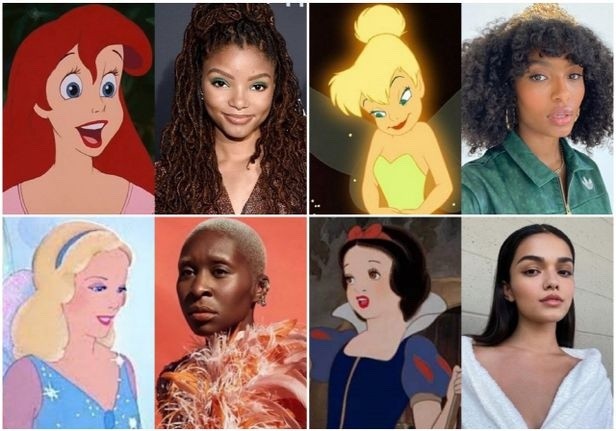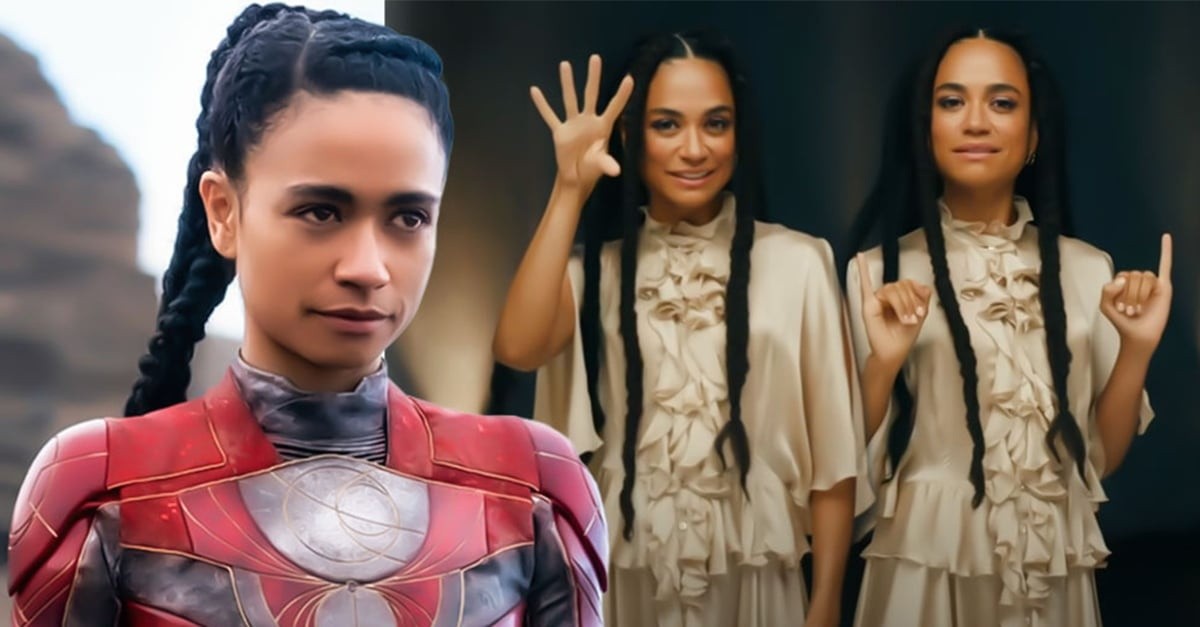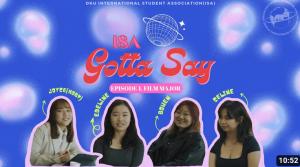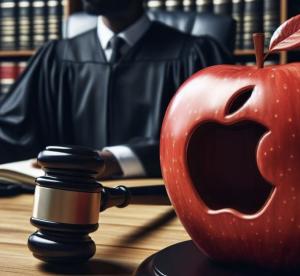In recent years, Hollywood has been known for casting actors that show industry respect for diversity and political correctness (PC). The movie industry, which was mainly centered around white heterosexual cisgender actors, started to cast people of color and queer people as main characters. This is an attempt to break down the deep-rooted bigotry towards marginalized communities. However, such casting has been met with negative public opinion such as the recent controversy over the casting of Disney’s live-action movie The Little Mermaid.
 |
| ▲ Casting of Disney’s Live-Action Remakes (Photo from Chosun Ilbo) |
PC is a term used to describe policies or measures that avoid prejudiced words or expressions on racial, ethnic, linguistic, religious, and gender grounds. It came into use to eliminate discrimination and prejudice, from a political point of view, in multi-ethnic countries such as the United States. Currently, it is widely implemented in various areas such as the film industry, the arts, and in politics. Disney has been playing the most active role in the promotion of PC culture by actively casting multicolored characters for leading roles. For example, in the live-action remake of The Little Mermaid, they cast a black singer, Halle Bailey, as the main character ‘Ariel.’ In addition, Disney cast Rachel Zegler, a Latin actress, as ‘Snow White’ and roles for Pinocchio's ‘Blue Fairy’ along with Peter Pan's ‘Tinker Bell’ were also given to black actresses, differing from the original. Disney is also steadily featuring sexual minorities in its films. Marvel Studios’ Eternals has a gay superhero. A short film called Out deals with a story of a gay man and his partner. However, despite the need to create an environment of diverse representation, such media moves are not always welcomed. When the casting of The Little Mermaid was revealed, negative public opinions dominated the internet and the hashtag ‘#NotMyAriel’ was trending on social media. In response, Disney tried to dismiss the controversy by expressing its official stance, saying that as the author of the original mermaid story is Danish, Danish mermaids could be black since there are black Danes. Criticism was also raised for casting an actor of color for the Snow White role, because the character was named after her pure white skin that looks like snow. Rachel Zegler responded to this controversy in a since-deleted tweet, "Yes I am Snow White, and no I am not bleaching my skin for the role."
Due to the overexposure of PC culture, those who consume mass media have divided opinions about it. There are those who disagree with PC elements appearing in media claiming that it is destroying the originals by being excessively overwhelmed with it. They argue the excessive destruction of the original casting is resulting in a blackwashing of traditional stories, where people of color get the roles normally cast with white people. Essentially it is the opposite of whitewashing. What they believe is that in the case of diversity-oriented casting, the message will shine only when it does not interfere with core tenant of the media work. As the media industry seemingly excessively reflects PC elements, such as the portrayal of social minorities in traditionally white roles, or the imposition of progressive values in content, the public’s opposition is growing stronger.
In contrast to this opinion, there are those who welcome a PC culture and view it as a necessary change in the media market. More and more positive views are emerging towards media companies addressing discriminatory issues, especially Disney, which has been criticized for being too conservative in the past but whose casting and writing policies have shifted over time. In addition, there have been videos of children of color watching the trailer for The Little Mermaid on social media that have gone viral recently. It is clear in the video that the children were delighted and moved to see a mermaid with a skin color like theirs and this led to a positive public opinion for Disney's casting decision. Many companies are working on improving their image with people of color and their efforts to show diverse people in the media. The Marvel franchise features LGBTQ+ characters to provide a different perspective on sexual minorities. In addition to that, disabled characters also appear, indicating an effort to improve people's perceptions of the community. Lauren Ridloff, the actor who played a deaf superhero ‘Makkari’ from the Marvel Studios’ Eternals is hearing impaired, which elicited more support from the disabled community. These days, more people are aware of the PC element, and take interest in a fair representation of the races and sexes. Those in favor of this situation feel that society is changing towards a positive and more open future.
 |
| ▲ A Deaf Superhero Makkari from Eternals (Photo from World Stock Market) |
The Dankook Herald (DKH) interviewed Professor Oh Se-jung and Shin Dong-jin from Dankook University (DKU)’s School of Communications about the prevalence of PC in the media. Professor Shin said PC in mainstream media is vital as consumers are heavily influenced by the content they watch, and this impacts a company’s bottom line. As PC becomes more common, society will be accustomed to a more diverse culture, race, and sexual orientation representation. Professor Oh said that there are not a lot of examples where discrimination from stereotypes has been reduced. However, by getting people interested in PC and allowing them to express their thoughts about it, will eventually turn their wrong perceptions into respectful ones. Although the PC culture has side effects like ‘cancel culture’ or ‘call-out culture’, Professor Oh believes PC has a positive effect in that people will take more interest in equality. About the recent Little Mermaid controversy, both professors explained that casting based solely on PC could make teenagers, who are not fully socially or morally developed, confused because they are more affected by the media than adults. Even though PC can have a positive influence on teenagers, unreasonable examples of PC may send a wrong or biased message. As for the question “Why is PC still included in media despite its controversy?”, Professor Oh explained that there are two reasons for it. One is the media’s impact on the debate which raised different perspectives forcing the public to reflect on it. “The expression of hatred, belittlement, and prejudice can dissolve, and perceptions could change,” said Professor Oh. Another is commercial viability. As consumer demand for diversity increases, content should also shift. In conclusion, both professors agreed that PC is needed in the media. In addition, a reasonable way of exposing it, would be to try to compose their content keeping in mind fairness and society’s capacity to adapt.
As of now, opinions concerning PC are deeply divided. Despite this situation, media companies, especially Disney, are actively leading casting based on PC culture to pursue diversity without paying attention to their critics. All we can do now is wait to see how movies released in the future will be evaluated by the public.
김서현, 전준형, 윤희원, 정영훈 dankookherald@gmail.com






